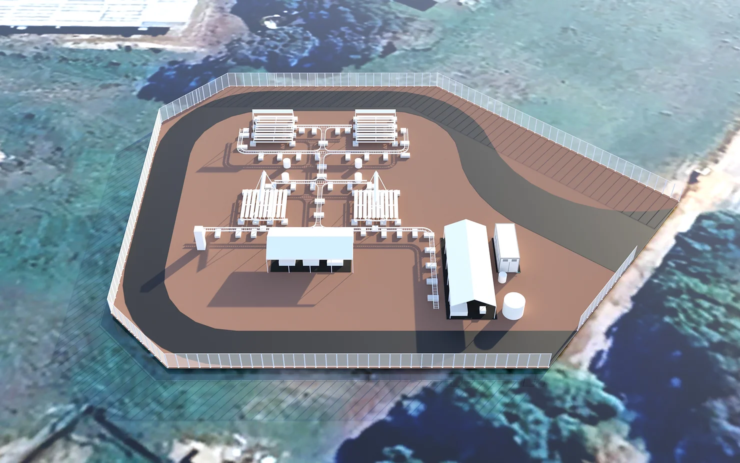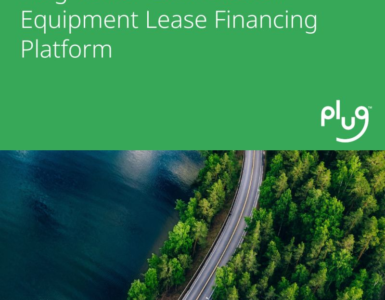Sparc Hydrogen Pilot Plant Activities Commence.
Sparc Technologies Limited (ASX: SPN) (Sparc, Sparc Technologies or the Company) is pleased to advise that Sparc Hydrogen, a joint venture between Sparc Technologies, the University of Adelaide and Fortescue Limited (ASX:FMG) (Fortescue), has commenced front-end engineering and design (FEED) for a global, first-of its-kind, pilot plant planned to be located at the University of Adelaide’s Roseworthy Campus.
The decision to commence FEED, obtain site approvals and procure long lead equipment is on the back of several key milestones achieved over recent months with respect to the pilot plant, including securing an in principle agreement from the University of Adelaide to locate the plant at its Roseworthy Campus, progressing pilot scale reactor design and engineering and the signing of a Collaboration Framework Agreement with Shinshu University in Japan, a leading developer of photocatalyst materials. Each of these milestones represents material de-risking of the pilot plant development workstreams building on from the pre-FEED study and the successful prototyping work completed at the CSIRO Energy Centre in early April 2024 (ASX Announcement 9 April 2024).
In parallel, work continues in the laboratory to test and optimise Sparc Hydrogen’s photocatalytic water splitting reactor under a range of conditions, using various high-efficiency photocatalyst materials.
Mr. Nick O’Loughlin, Sparc Technologies Managing Director, commented:
Sparc is delighted with the progress that the Sparc Hydrogen team has made over recent weeks and months on key development workstreams for the pilot plant.
“Commencing FEED for the pilot is an important milestone for the joint venture and follows a substantial amount of work on reactor design, site selection and photocatalyst sourcing. In the global context of high electricity prices, energy insecurity and increasingly urgent calls for decarbonisation, we believe that the requirement for alternative, low-cost green hydrogen production technology has never been greater.”
FEED Study
Sparc Hydrogen has engaged Incitias Pty Ltd (Incitias) to complete front-end engineering and design for a pilot plant planned to be located at the University of Adelaide’s Roseworthy Campus. Incitias is a leading global engineering and commercial service provider headquartered in Melbourne which is dedicated to facilitating energy transition projects worldwide. Incitias also led the pre-FEED study completed in Q4 2023 on behalf of Sparc Hydrogen. The FEED study will build on the flowsheet developed during the pre-FEED which included four linear Fresnel modules within an end-to-end green hydrogen production system (Figure 1). The plant will allow Sparc Hydrogen to independently and concurrently test different reactor designs and photocatalyst materials. Sparc Hydrogen is not aware of any similar facilities developed for testing photocatalytic water splitting under concentrated solar conditions worldwide.
Collaboration Framework Agreement Sparc Hydrogen has recently executed a Collaboration Framework Agreement (CFA) with Shinshu University (Shinshu) in Japan. The CFA has been entered into to further each party’s work in advancing photocatalytic water splitting (PWS) as a method to produce green hydrogen at commercial scale. The CFA sets out the principal terms on which the parties have agreed to explore collaborations and pursue negotiations regarding the use of photocatalysts developed by Shinshu in solar reactors developed by Sparc Hydrogen. The provision of photocatalysts by Shinshu to Sparc Hydrogen will be governed by the terms of separate binding project agreements on terms to be agreed between the parties.
Shinshu University is a key participant in Japan’s ARPChem project, a collaborative research initiative backed by Japan’s New Energy and Industrial Technology Development Organization (NEDO) which has demonstrated the feasibility of producing hydrogen through photocatalytic water splitting on an area scale of 100m² over a greater than 12 month period. Participants in ARPChem include the following Japanese companies and universities/research institutes: • Companies: INPEX Corporation, JX Nippon Mining & Metals Corporation, Dai Nippon Printing Co., Ltd., Dexerials Corporation, Toray Industries Inc., Toyota Motor Corporation, Nippon Steel Corporation, Furuya Metal Co., Ltd., Mitsui Chemicals, Inc. and Mitsubishi Chemical Corporation. • Universities and Research Institutes: Kyoto University, National Institute of Advanced Industrial Science and Technology, Shinshu University, The University of Tokyo, Tokyo University of Science, Tohoku University, Nagoya University and Yamaguchi University.
Pilot Plant Site Selection
The University of Adelaide has provided Sparc Hydrogen with in-principle support to locate the pilot plant at its Roseworthy Campus, ~50km north of the Adelaide CBD. Roseworthy was assessed among several other sites in Adelaide and regional South Australia and was deemed the highest-ranking site considering a range of criteria. Key factors in this assessment included infrastructure access, proximity for researchers and other key stakeholders, and relative control over obtaining requisite approvals. The pre-FEED study completed in late 2023 was based on locating the plant at Roseworthy, although this did not factor into the site selection criteria. Roseworthy Campus is wholly owned by the University of Adelaide and is predominantly used for undergraduate teaching, postgraduate training, research and clinical services. The Campus is located on a 1,600 ha property, which includes a working farm, and has an international reputation for excellence in dryland agriculture, natural resource management and animal production. Securing the proposed site at Roseworthy is contingent on the execution of a formal lease agreement between the University of Adelaide and Sparc Hydrogen.
PWS Reactor Design and Engineering
Over recent months, Sparc Hydrogen has significantly progressed the design and engineering of a pilot scale PWS reactor. Sparc Hydrogen has been working collaboratively with the chosen linear Fresnel equipment supplier to ensure the reactor’s compatibility with their solar concentrator design. The Sparc Hydrogen team has also identified manufacturing capability within Australia to support local construction of the PWS reactors. The recent prototype testing completed at CSIRO Energy Centre provides confidence in the underlying design principles for the pilot scale reactor.
Funding and Timeline
Sparc Hydrogen has funding available to support FEED costs, reactor manufacturing, site approvals and procurement of linear Fresnel solar concentrators for the pilot plant. A final investment decision supporting the construction of the pilot plant remains subject to Sparc Hydrogen board approval, which is targeted at or around completion of the FEED study in early Q4 2024. Based on the current expected timeline and subject to approval, pilot plant construction is planned to commence in Q4 and is due to be completed in Q1 2025. Sparc Hydrogen submitted a CRC-P grant application in June which, if successful, will provide additional funding for pilot plant construction and R&D. Results from the CRC-P application are expected in late Q3 or early Q4 2024.
READ the latest news shaping the hydrogen market at Hydrogen Central
Sparc Hydrogen Pilot Plant Activities Commence. source









